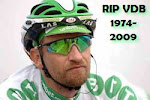[Ed. Pause while readers send positive energy.]

OK! Having sent your positive energy, and with a new perspective on life (thankful for what you have, right?) you now want to know what is Rhabdomyosarcoma? Well, according to the Internet:
Rhabdomyosarcoma is a fast-growing, highly malignant tumor which accounts for over half of the soft tissue sarcomas in children. Less frequently, other soft tissue sarcomas are found in children: fibrosarcoma, mesenchymoma, synovial sarcoma, and liposarcoma.
Rhabdomyosarcoma often causes a noticeable lump on a child's body. If the tumor is located internally, the symptoms depend on its location. For example, tumors in the nasal passage may put pressure on the eustachian tubes; a bladder tumor can cause trouble urinating; an orbital tumor may cause the eye to protrude.
About Rhabdomyosarcoma
Rhabdomyosarcoma tumors arise from a cell called a "rhabdomyoblast", which is a primitive muscle cell. Instead of differentiating into striated muscle cells, the rhabdomyoblasts grow out of control. Since this type of muscle is located throughout the body, the tumors can appear at numerous locations. The four major sites in which rhabdomyosarcoma is found are:
* head and neck; around the eyes -- 35-40%
* genitourinary tract -- 20%
* extremities -- 15-20%
* trunk (chest and lungs) -- 10-15%
Depending on the "histology" of the cells (how they look under a microscope), the tumors are classified as one of the following:
Embryonal rhabdomyosarcoma. Most common type, usually found in children under 15 and in the head and neck region and genitourinary tract.
Botryoid type. A variant of the embryonal type; the tumor arises as a grape-like lesion in mucosal-lined hollow organs such as the vagina and urinary bladder.
Alveolar type. A more aggressive tumor which usually involves the muscles of the extremities or trunk.
Pleomorphic type. Usually seen in adults and arises in muscles of the extremities.
Embryonal rhabdomyosarcoma is considered the most treatable form of the disease. The prognosis is also affected by the location of the primary tumor. Orbital and genitourinary track rhabdomyosarcomas have a better prognosis than do tumors which originate in the head and neck, extremity, pelvic, and trunk locations.
Prognosis also depends on the stage of the tumor. The Intergroup Rhabdomyosarcoma Study Group has defined a set of guidelines, which assign the tumor to groups 1-4 depending on the extent of the disease. For more information, see the PDQ on the staging of rhabdomyosarcoma.
Treatment
Rhabdomyosarcoma is treated by a combination of surgery, chemotherapy, and radiation.
Surgery. Resection (removal) of the primary tumor. If necessary after chemotherapy or radiation has shrunk the tumor.
Chemotherapy. The following chemotherapy agents are commonly used: vincristine, cyclophosphamide, dactinomycin, adriamycin, ifosfamide, VP-16.
Radiation. External beam radiation is used in some cases of rhabdomyosarcoma.
Statistics
- Accounts for 5-8% of childhood cancers.
- 70% of all rhabdomyosarcoma cases diagnosed in the first ten years of life.
- Usually affects children the ages of 2 to 6 and 15 to 19.
- The peak incidence in 1-5 age group.
- Overall, 50% of the children diagnosed with rhabdomyosarcoma survive 5 years.







i am a mom of a rhabdo child. it's a long hard fight. praying for them.
ReplyDeletejennifer
Jennifer,
ReplyDeleteSo sorry to hear that you're fighting this disease too. However, THANK YOU for sharing and letting us know. This way my friend will not feel alone. If you have ANY advice, suggestions, knowledge or resources picked-up or learned upon the way that you'd be willing to share, please feel free to post them here or email them to me at (joe at joepapp dot com). I'll make sure he gets them.
Best,
Joe
We too are parents of a rhabdo child. Our son finished treatment in Feb, and all is looking positive.
ReplyDeleteHere is our blog if you want to take a look, we were happy to give everything a go that wouldn't interfere with his medical treatment.
http://web.mac.com/richard.davis/Baileys_website/Welcome.html
So sorry to hear of your friends child's illness - I'm thinking lots of positive thoughts for all their health and happiness!
ReplyDeleteAlso, many thanks for reminding me that my kids not getting dressed, running late and busy traffic are really not 'problems' at all. My sense of gratitude and happiness has now been reset.